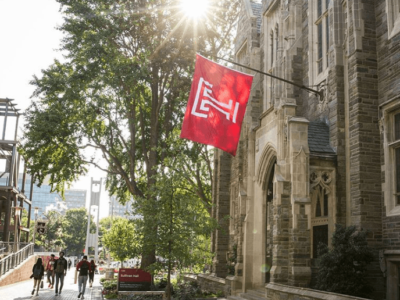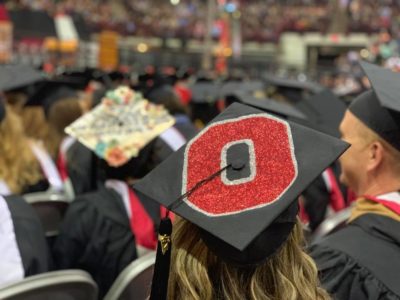“I just want my biscuits man,” freshman Nathaniel Thompson said. Thompson smiles as he lists the foods he misses from his home in Pearland, Texas—a city miles from his college Pepperdine University. “Real barbecue; people here don’t know the truth. Actual barbecue, you cook your stuff for a day at least. We like our meat.” Thompson is one of 413 of Pepperdine freshmen who are out-of-state students, according to the Seaver admissions page.
While Pepperdine has a higher percentage of out-of-state students than other California schools like Loyola Marymount and UCLA, Californians still dominate the student population at 55 percent. “I feel like a lot of my experience here is noticing things that are missing,” Thompson said. “It’s just little things I’m picking out over time.”
Out-of-state students must adjust not only to Pepperdine’s Christian atmosphere, but also the cultural nuances of Southern California and Malibu, changes in food, dialect, weather and lifestyle.
First year student Elizabeth Reinowsky began noticing differences in dialect after moving from Merton, Wisconsin, a town with less than 3,000 people. “I talk about a bubbler, and people don’t know what I’m talking about. People don’t know what I’m talking about when I talk about cheese curds,” Reinowsky said. But these differences don’t hinder her conversations with friends. “I feel like we can all find a common ground in what we talk about even though we use different words,” Reinowsky said. “We all kind of talk about the same things. We just talk about it in a different way.” What makes students unique and different also brings them together.
Thompson noticed changes in pronunciation during a theatre rehearsal. “I said ‘fixin’,’ and it stuck out,” Thompson said. “Everyone was like ‘fixin?’ and I was like ‘Oh my god, that’s not used here.’” New slang doesn’t account for all the differences in communication for Pepperdine students from outside Southern California.
According to Assistant Professor of Communication Charles Choi, students may make an effort to become a part of the “in-group” by changing speech patterns and mannerisms.
“People generally want to be a part of the in-group,” Choi said. “As a result we use strategies to pass as the in-group.” Thompson noticed himself adjusting his behavior to the attitudes of Californian students. “Culturally, you don’t talk to strangers as much,” Thompson said. “I will say the southern hospitality is real. With the cashier, you might talk about your day or what you’re doing this weekend really quick, like five minutes. [At Pepperdine], I find myself trying to look away from people as I walk by them because if I smile at them they are usually looking away. They’re not being mean. It’s just a bit different, just trying to mind their own business. And that’s cool. I understand that.”
According to Choi, not all students try to blend in with a new culture. “In contrast to that, there is something to say about people who want to stand out, and they want their group to stand out as unique,” Choi said. This practice combines two communication theories: communication accommodation theory and expectancy violation theory.
Communication accommodation theory by Howard Giles states that when one moves to a new culture he or she will either change his or her speech patterns to match the new culture or to diverge against it.
Expectancy violation theory by Judee Burgoon, suggests that when one person violates what is expected in a conversation, the other participant will evaluate the violation as positive or negative. “The violation causes a reaction and brings attention upon themselves,” Choi said. “If somebody is seen and evaluated as well, then a violation will be seen as positive.” I guess making a scene around campus might be worth the results.
In addition to differences in communication, there is one stark change for out-of-state students. “The first thing they always mention is the weather,” Thompson said. “Houston is known for having really brutal summers because it’s so close to the Gulf; it’s kind of swamp land basically. The summer gets up to 100 degrees or so. Coming [to Califronia] like 70 all year, yes, that was definitely one big difference.” Now, Thompson couldn’t be cooler.
For junior Caroline Rubach from Naperville, Illinois, she missed something she could only get from her Midwest home. “I definitely miss the fall and the change of seasons,” Rubach said. “As seasons change, it also parallels the seasons of life changing versus [California] where it’s always sunny.”
According to Rubach, the mild weather in Malibu leads to a different lifestyle than what she grew up in. “There is a different attitude, a different lifestyle, with the fact that it’s always sunny,” Rubach said. “People walk around without shoes. That was a big thing I remember freshman year. Even at the grocery store people would do things like that, and I was shocked. It’s more laid back and a lot more free-spirited versus the Midwest, [which] is more rooted in these commonly understood values.” Rubach did not expect that Southern California would differ as much as it did from Illinois.
Despite new slang, sunny weather and a different lifestyle, Everyone finds comfort in one similarity between Malibu and their home town. “I will say, I was worried about Mexican food coming up here, and then I remembered it’s California, and they have plenty,” Thompson said. See, there’s even potential to find your favorite comfort food away from home.



















